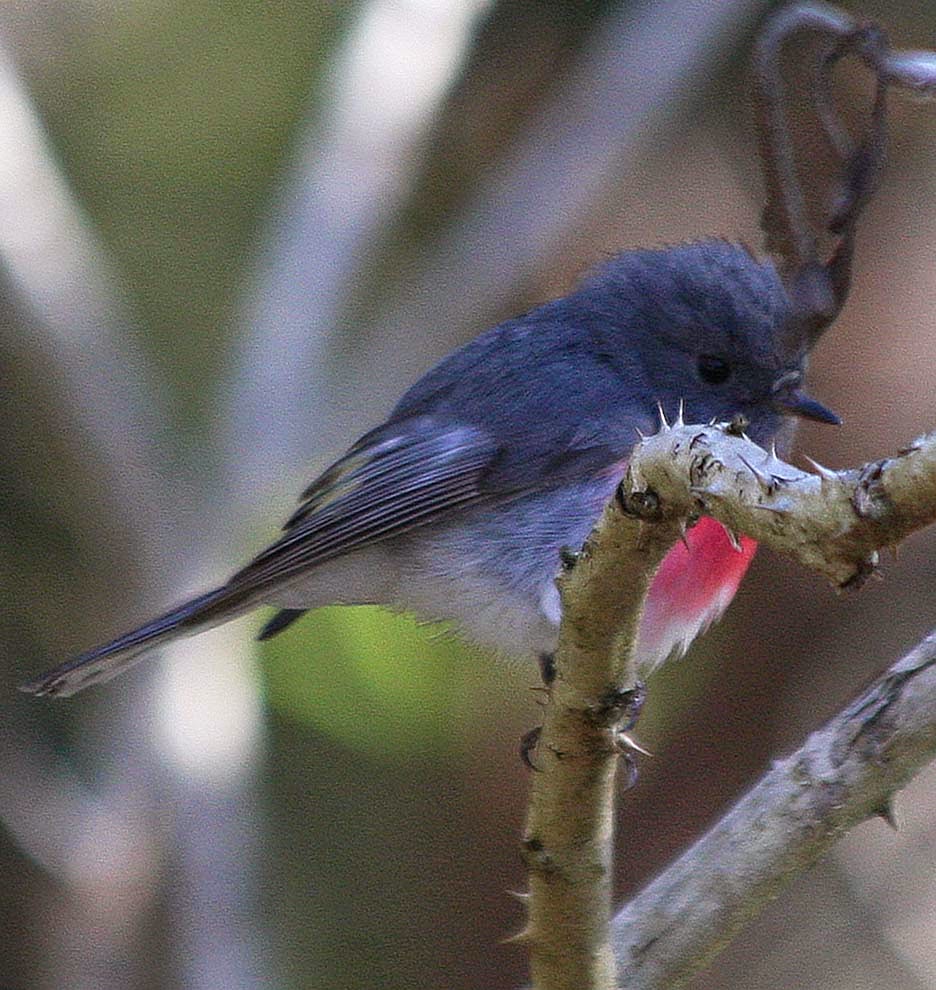I lost a pullet to a Grey Goshawk early on in the month. My fellow chook breeders all started discussing how to kill the raptor when I mentioned this, and were somewhat aghast when I announced that I had no intention of killing such a beautiful bird of prey, however, something had to be done. The Goshawk stayed around for a couple of days and I made sure that he was aware that I was out and about, and despite giving the pullets a few more scares he was unsuccessful. Whilst he was missing, I was watching his tactics and it soon became obvious there was only one direction that he could really attack from and so a simple solution presented itself. I put up a 4m x 3m square white bird net, the sort of thing you protect your vegies with, as a panel blocking his attack vector. It has worked superbly so far. As a net it hasn't been to affected by the winds, and we've had some strong ones since, and it's visible enough to put most birds off.
 | |
| Anti-hawk net |
A few birds have accidentally flown into it, having been startled by something, but they've just slid down the net and taken off again apparently with nothing more than a few ruffled feathers. Success!
In a fit of enthusiasm I've started erecting nesting boxes. Not as simple as back in the UK, you need to get them a lot further up the tree, and gum trees have less branches to fix them to, but after a while spent precariously balancing on my 5m ladder I eventually achieved the aim. Now we wait until Spring to see if anyone takes any notice of them
 |
| With a larger hole I'm hoping a pair of Parrots may take a shine to this one. |
 |
| Nice view from the box, overlooking the dam. |
On the chook front we finally got some Blue Faverolle chicks. We lost our Blue Faverolle cock to the heat earlier in the year and had to wait until the Splash cocks matured enough, but finally we have success.
 |
| Louis & Napoleon our Splash Faverolle cocks. |
 |
| Blue Faverolle chicks making sure I've got the heat right. |
And so, on to the birds...
Regulars (Seen at least x5 per week)
Australian Magpie
Bar-shouldered Dove
 |
| Bar-Shouldered Dove stepping out on the drive. |
Bronzewing
 |
| female Common Bronzewing |
Double-barred Finch
Dusky Moorhen
Eastern Spinebill
 |
| Eastern Spinebill feeding on the Pineapple Sage |
Galah
Grey Fantail
 |
| Grey Fantail |
Mallard
 |
| Monty Mallard on the bird table |
Pacific Black Duck
Pied Currawong
Plumed Whistling Duck
Purple Swamphen
 |
| Purple Swamphen |
Rainbow Lorikeet
Striated Pardalote
Sulphur Crested Cockatoo
Torresian Crow
Yellow-faced Honeyeater
Common (Seen at least x2 per week)
Black-faced Cuckoo Shrike
Brown Honeyeater
Grey Butcherbird
Grey Shrike Thrush
Laughing Kookaburra
 |
| Laughing Kookaburra |
Lewin's Honeyeater
Noisy Miner
Rainbow Bee Eater
Welcome Swallow
White-throated Gerygone
Wood Duck
Yellow-tailed Black Cockatoo
Uncommon (Seen 2-5 times per month)
Golden Whistler
Grey Goshawk
Magpie Lark
Noisy Friarbird
Olive-backed Oriole
Pale-headed Rosella
Peaceful Dove
Rose Robin
 |
| Rose Robin |
Rufous Whistler
Silvereye
 |
| Silvereye in a Wattle |
Varied Sitella
Wedge-tailed Eagle
White-bellied Cuckoo Shrike
White-eyed Duck
 | |
| White-eyed Duck (Hardhead) surrounded by a flotilla of Plumed Whistling Duck and a lone Pacific Black Duck |
White-throated Treecreeper
Willie Wagtail
Yellow-rumped Thornbill
Rare (Seen only once in the month)
Blue-faced Honeyeater
Brown Goshawk
Figbird
Little Corella
Pale-headed Rosella
Spangled Drongo
Tawny Frogmouth
Which is 53-species, which is 10 below last June. The number surprised me as there seemed to be a lot of birds around, especially the smaller species, but I'm confident the spread will improve.

No comments:
Post a Comment